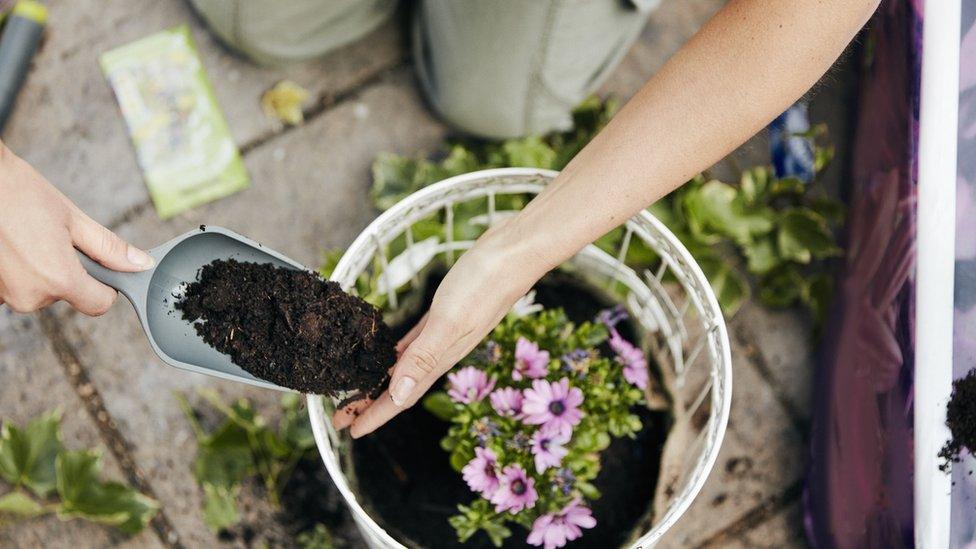Climate change: National Trust joins international call for peat product ban
- Published
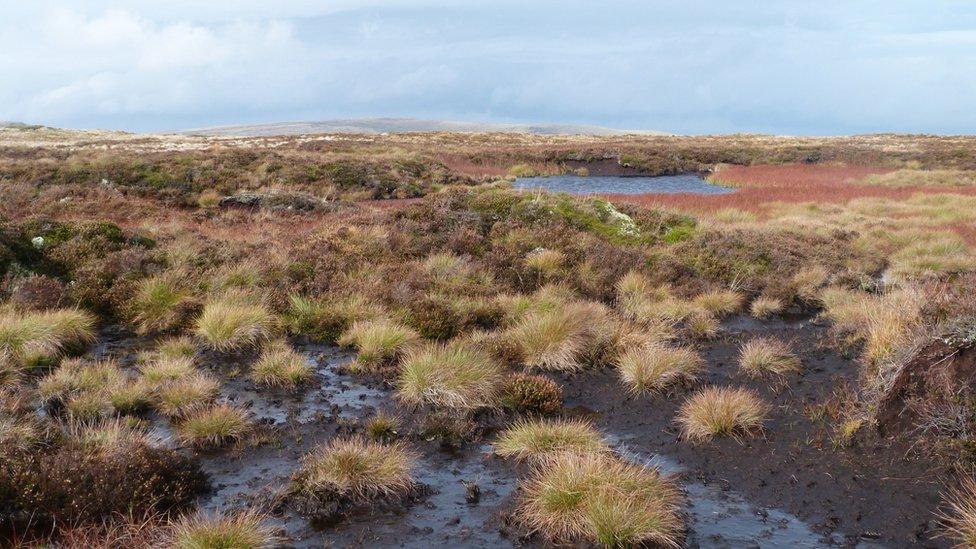
Peat bogs act as a carbon sink, trapping carbon dioxode emissions and help to combat climate change
The National Trust is calling on the government to ban peat being used in compost, as part of efforts to try and limit climate change.
It is one of more than a dozen international organisations asking for a switch to sustainable alternatives.
Peat bogs are a carbon sink - meaning they soak up carbon dioxide emissions that exacerbate global warming.
The UK government has already said it intends to ban the sale of peat compost to the public in England by 2024.
But in a joint statement on peat, the National Trust and the National Trust for Scotland - as well as similar groups including from the Irish Republic, Korea and Indonesia - urged the government to "act now", external and ban the sale of peat products in horticulture entirely.
They made the call to coincide with the COP26 climate summit negotiations.
Peat is the surface layer of soil, made up primarily of partially decomposed plant material which has developed in waterlogged and low oxygen conditions. This water-holding capacity, and the fact it is relatively inert, make it ideal for plant growth, where it is often used in compost, as well as harvested and burned as fuel.
Research shows peatland traps almost twice as much carbon as forests, despite covering just 3% of the earth's surface.
But peat bogs that have been drained, dug up for fuel or used in compost have the opposite effect and contributes to carbon emissions.
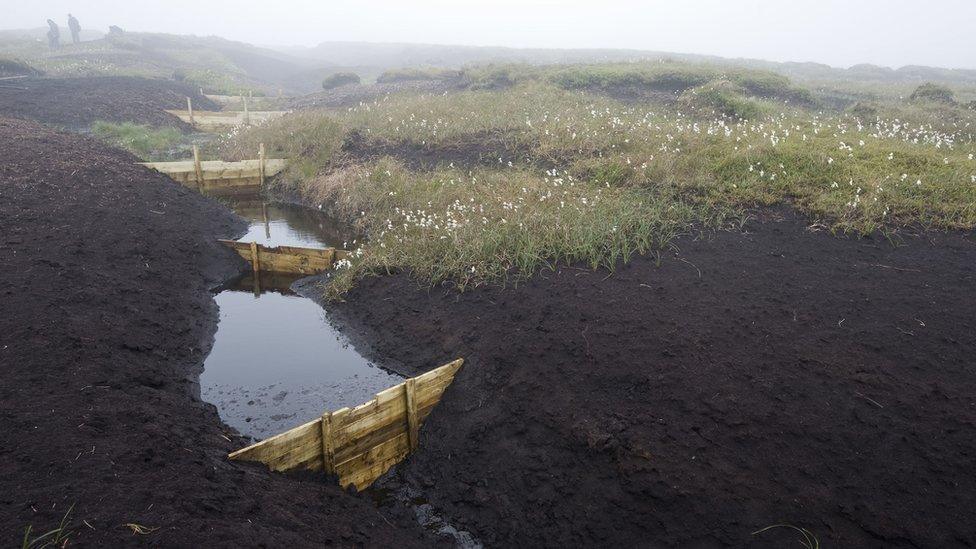
A peatland restoration project in the Peak District
The National Trust said healthy peatlands also help to control flooding and encourage vegetation that can provide homes for wildlife.
The organisation, which is one of the largest landowners in England, Wales and Northern Ireland, said it was taking action to eliminate the use of peat in its gardens and supply chains.
National Trust director general Hilary McGrady said the international organisations were "all taking action" to eliminate the use of peat, but added "we can't end this practice alone".
She called on members to "make a positive choice for climate and for nature" and buy peat-free compost to use in their gardens, as well as check whether plants they buy are peat free.
Ms McGrady said: "It is through this sort of collective effort that we can unite in the fight against climate change.
"We also need government to step up and play their part by bringing in legislation that bans the sale of products containing peat."
Leading garden centres in the UK have been found to be failing to stop the sale of peat in compost, despite pressure from campaigners and government.
Last year countryside charity CPRE warned emissions from UK peatland could cancel out all carbon reductions made through new and existing forests.
Correction 16th November: We have amended this article to remove an inaccurate description of peat as "filled with nutrients" and make clear that its popularity in horticulture relates to its water-holding capacity and relatively inert state.


- Published2 April 2021
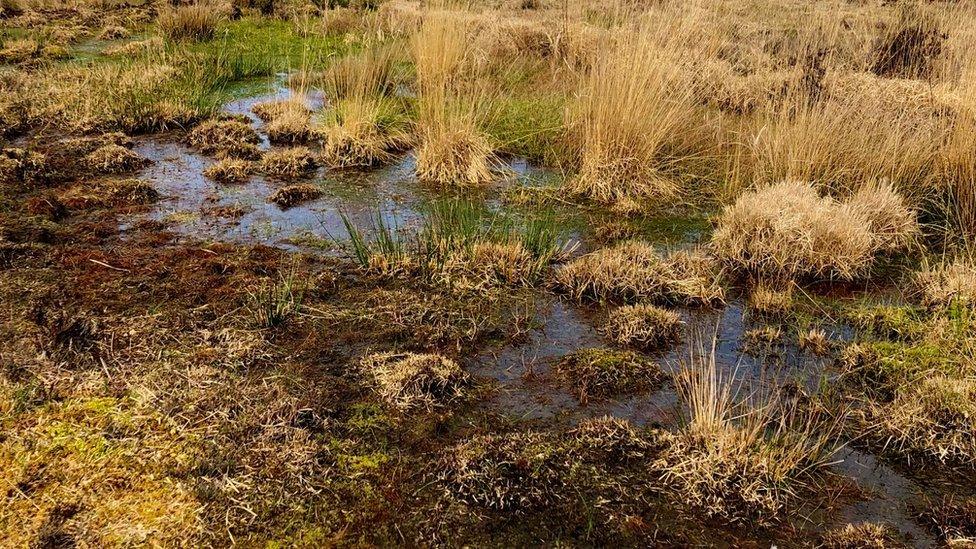
- Published7 August 2020
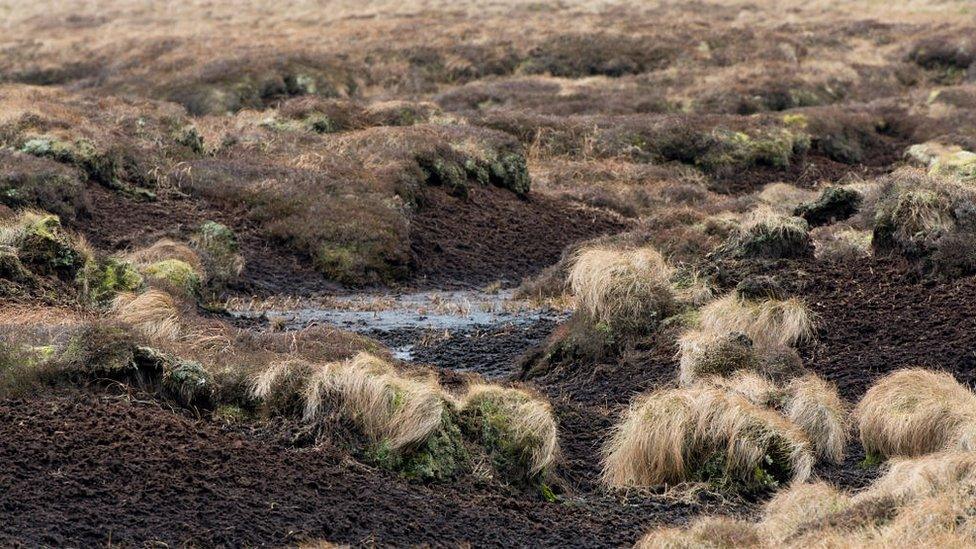
- Published19 May 2021
